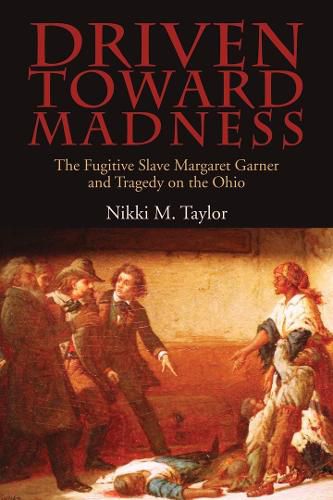Readings Newsletter
Become a Readings Member to make your shopping experience even easier.
Sign in or sign up for free!
You’re not far away from qualifying for FREE standard shipping within Australia
You’ve qualified for FREE standard shipping within Australia
The cart is loading…






Margaret Garner was the runaway slave who, when confronted with capture just outside of Cincinnati, slit the throat of her toddler daughter rather than have her face a life in slavery. Her story has inspired Toni Morrison’s Beloved, a film based on the novel starring Oprah Winfrey, and an opera. Yet, her life has defied solid historical treatment. In Driven toward Madness, Nikki M. Taylor brilliantly captures her circumstances and her transformation from a murdering mother to an icon of tragedy and resistance.
Taylor, the first African American woman to write a history of Garner, grounds her approach in black feminist theory. She melds history with trauma studies to account for shortcomings in the written record. In so doing, she rejects distortions and fictionalized images; probes slavery’s legacies of sexual and physical violence and psychic trauma in new ways; and finally fleshes out a figure who had been rendered an apparition.
$9.00 standard shipping within Australia
FREE standard shipping within Australia for orders over $100.00
Express & International shipping calculated at checkout
Margaret Garner was the runaway slave who, when confronted with capture just outside of Cincinnati, slit the throat of her toddler daughter rather than have her face a life in slavery. Her story has inspired Toni Morrison’s Beloved, a film based on the novel starring Oprah Winfrey, and an opera. Yet, her life has defied solid historical treatment. In Driven toward Madness, Nikki M. Taylor brilliantly captures her circumstances and her transformation from a murdering mother to an icon of tragedy and resistance.
Taylor, the first African American woman to write a history of Garner, grounds her approach in black feminist theory. She melds history with trauma studies to account for shortcomings in the written record. In so doing, she rejects distortions and fictionalized images; probes slavery’s legacies of sexual and physical violence and psychic trauma in new ways; and finally fleshes out a figure who had been rendered an apparition.